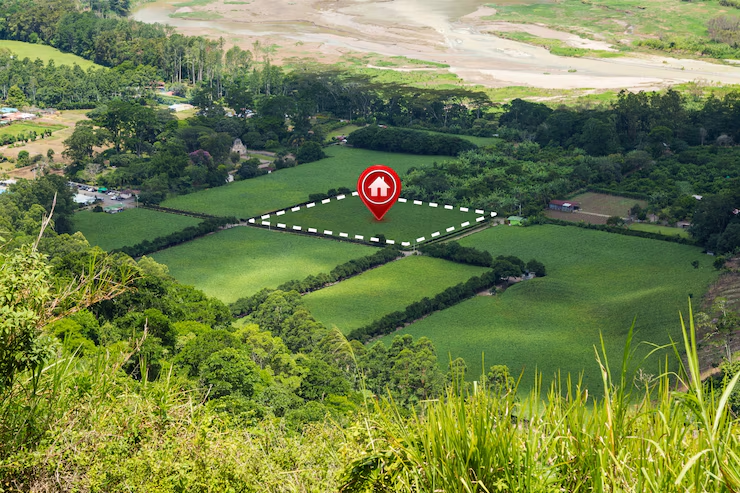As Kenya’s real estate market continues to grow, land subdivision has become a smart strategy for both property owners and investors. Subdividing land allows you to increase its value, attract multiple buyers, or develop smaller, manageable plots for resale or rental income. Whether you own a large piece of land or plan to invest in acreage, understanding the subdivision process is crucial.
In Kenya, land subdivision involves legally dividing a parcel into smaller plots, each with its own title deed. However, the process isn’t as simple as drawing boundaries. It requires approval from local authorities, proper surveying, and strict compliance with land laws.
That’s why, at Justhomes Kenya, we guide you every step of the way—through the Justhomes App by Just Group Ltd, we connect you with licensed surveyors, land planners, and legal experts who ensure a smooth subdivision process. From initial planning to final title issuance, we help you navigate all legal and administrative requirements.
In this article, we’ll break down what land subdivision entails, why it’s beneficial, and how investors and landowners in Kenya can do it the right way.
Why is Land Subdivision Important in Kenya Today
Land subdivision in Kenya has become increasingly popular among property owners and investors. As urban areas expand and land prices rise, subdividing large parcels into smaller plots offers a practical solution for maximizing value and enhancing property accessibility.
Here’s why land subdivision is important in Kenya today:
-
Increased Land Value
Subdivided land often sells at a higher total value compared to selling it as one large parcel. Smaller plots attract more buyers. -
Faster Sale Turnaround
Most buyers in Kenya prefer affordable, smaller plots. Subdivision meets this demand, making it easier to sell. -
Improved Land Management
Dividing land into portions allows for better planning and utilization—whether for residential, commercial, or agricultural development. -
Legal Recognition
With proper subdivision, each plot receives its own title deed, simplifying ownership and transfer. -
Attracts Development Partners
Developers and SACCOs are more likely to partner with owners who have titled, subdivided land ready for use.
Top real estate firms like Optiven, OneEleven Properties, and Username Investments have embraced subdivision to deliver affordable, titled plots across Kenya. Their structured processes and legal compliance ensure buyers get value and security.
Moreover, the Justhomes App by Just Group Ltd. helps landowners begin the subdivision process with expert support. The app connects users with certified land surveyors, planners, and legal professionals to guarantee smooth and compliant subdivision.
In today’s competitive market, land subdivision isn’t just an option—it’s a smart investment strategy that drives growth and opens doors to new opportunities.
Step-by-Step Process of Land Subdivision in Kenya
Understanding the land subdivision process in Kenya is essential for property owners and investors who want to unlock the full potential of their land. Subdivision allows you to divide a large parcel into smaller plots, each with a separate title deed. However, this must be done legally and with approval from relevant authorities.
Here’s a step-by-step guide to land subdivision in Kenya:
-
Step 1: Hire a Licensed Surveyor
Begin by engaging a registered surveyor to conduct a topographical survey and prepare subdivision plans based on zoning regulations. -
Step 2: Obtain Subdivision Approval
Submit the proposed plan to the County Government’s Physical Planning Department for approval. Compliance with land use, road access, and plot size guidelines is crucial. -
Step 3: Land Control Board (LCB) Consent
Apply for LCB consent, especially in agricultural zones. The board ensures the subdivision serves a genuine purpose. -
Step 4: Survey and Beaconing
After approval, your surveyor will place beacons to mark plot boundaries and prepare mutation forms. -
Step 5: Registration of New Titles
Finally, submit all documents to the Land Registry for processing and issuance of individual title deeds.
We ensure users can connect with surveyors, planners, and legal experts who guide them through every stage. The platform simplifies what can otherwise be a lengthy process—saving time, money, and frustration.
Laws, Acts, Regulations Governing Land Subdivision in Kenya
Land subdivision in Kenya must follow strict legal frameworks to ensure ownership rights, orderly development, and land use control. Every investor or landowner planning to subdivide property must comply with national and county-level laws. These laws safeguard buyers, prevent land disputes, and guide urban planning.
Key laws and regulations that govern land subdivision in Kenya include:
-
The Land Registration Act (2012)
Governs how land is registered and how titles are issued after subdivision. -
The Physical and Land Use Planning Act (2019)
Requires approval of subdivision plans by the County Government. This Act ensures proper zoning and development standards. -
Land Control Act (Cap 302)
Makes it mandatory to get consent from the Land Control Board (LCB) before transferring or subdividing agricultural land. -
Survey Act (Cap 299)
Outlines how land should be surveyed, beaconed, and documented before registration. -
Environmental Management and Coordination Act (EMCA)
Applies where large subdivisions may impact the environment and require assessment.
Moreover, the Justhomes App by Just Group Ltd. simplifies the legal process for users. It connects landowners with licensed surveyors, lawyers, and planners who ensure all regulations are followed—saving you time and avoiding costly legal issues.
Understanding these laws not only ensures compliance but also builds trust and protects your investment long-term.
Costs Involved in Subdividing Land in Kenya
Subdividing land in Kenya is a smart move for investors and property owners looking to maximize returns. However, it’s important to plan for the associated costs, which vary depending on location, land size, and the professionals involved. Being aware of these expenses helps you budget wisely and avoid delays.
Here are the common costs involved in the land subdivision process:
-
Land Surveyor Fees
A licensed surveyor is essential. Charges range from Ksh 30,000 to Ksh 100,000 depending on plot size and complexity. -
County Government Approval Fees
Local authorities charge for reviewing and approving subdivision plans. This can cost between Ksh 10,000 and Ksh 25,000. -
Land Control Board (LCB) Consent
You must pay around Ksh 1,000 to Ksh 5,000 to secure LCB approval for agricultural land subdivisions. -
Mutation and Registration Fees
These cover document processing and title registration, costing between Ksh 10,000 and Ksh 20,000 per plot. -
Beaconing and Mapping
After approval, beaconing costs around Ksh 3,000 to Ksh 7,000 per plot depending on terrain. -
Legal and Consultancy Fees
Engaging a lawyer to draft agreements and verify documents may cost between Ksh 15,000 and Ksh 50,000.
Using the Justhomes App by Just Group Ltd., you can connect with qualified surveyors and legal professionals who offer transparent pricing—helping you plan better and execute your subdivision efficiently.
Common Challenges in Land Subdivision in Kenya
While land subdivision in Kenya offers many benefits, the process is not without its challenges. Property owners and investors often face setbacks due to legal, technical, or administrative issues. Knowing these challenges helps you prepare adequately and avoid costly mistakes.
Here are the most common challenges faced during land subdivision:
-
Delays in County Approval
County governments may take weeks or months to approve subdivision plans. This often happens due to backlog or incomplete applications. -
High Professional Costs
Hiring licensed surveyors, planners, and legal experts can be costly, especially for first-time landowners. -
Lack of Proper Documentation
Missing title deeds, outdated maps, or unclear land boundaries often stall the subdivision process. -
Land Disputes and Boundary Conflicts
Disagreements with neighbors or family members can result in legal battles, which delay or block subdivision. -
Environmental and Zoning Restrictions
Some areas may have zoning laws or environmental policies that limit how land can be subdivided.
We also helps property owners manage subdivision processes by connecting them with verified experts and real-time support. This minimizes delays and ensures that every step follows legal requirements.
Being proactive and working with professionals makes land subdivision smoother and legally compliant—protecting both your time and investment.

Final Thought
Land subdivision in Kenya is a smart way to maximize property value, attract buyers, and boost investment returns. However, the process involves approvals, surveys, and legal procedures that must be followed carefully to avoid delays and disputes.
Working with trusted developers like Optiven, OneEleven Properties, and Username Investments ensures you’re buying or selling land that is legally subdivided and properly documented. Their experience and professionalism help make the process smooth and secure.
To make land subdivision even easier, the Justhomes App by Just Group Ltd. connects you with licensed surveyors, legal advisors, and planning experts. From application to title issuance, the app offers step-by-step support for a stress-free experience.
Whether you’re a landowner looking to unlock value or an investor seeking subdivided plots, understanding the process and working with the right partners is key. Subdivide smartly, invest confidently, and grow your wealth with Justhomes by your side.

